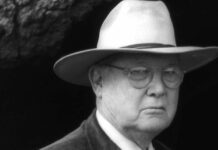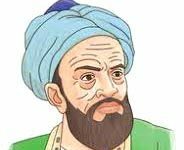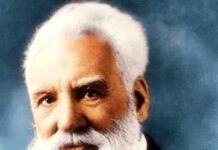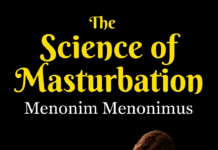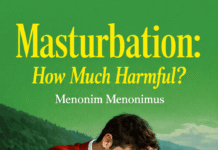Discover the life of Bhimbar Deori, a key social activist and reformer from Assam. Learn about his contributions to tribal development, his role in the Assam Backward Plains Tribal League, and his influence on legislative reforms. Explore his educational achievements, advocacy for decentralization, and lasting impact on Assam’s socio-political landscape.”
Bhimbar Deori
Bhimbar Deori-Brief Life Sketch
Bhimbar Deori was a social activist, reformer, cultural coordinator, influential politician and thinker.
Bhimbar Deori was born on May 16, 1903, in Shivsagar district. His father’s name was Gadram (Gadara) Deuri. His mother’s name was Bajati Deuri (Bajang) Deuri.
He started his education at Bargaon Primary School. He was a brilliant student and earned a scholarship of four rupees per month. In 1925, he passed the entrance examination from Shivsagar Government High School with letter marks in five subjects. He was later admitted to Cotton College and passed I A in 1927 in the first division. He graduated from the same college in 1929 with a second class in Economics. In 1931, he passed the law examination from Calcutta. At the same time, he was studying in the postgraduate class at Presidency College but returned to Assam without completing his education. In 1932, he passed the Assam Civil Service Examination, although he went on to practice law independently. The advocacy business opened up the public life of Bhimbar.
In 1933, the Assam Backward Plains Tribal League was convened by Bhimbar Deuri to unite the underprivileged people of Assam. The Assam Backward Plains Tribal League was born in Raha, Nagaon. In 1935, on the demand of the Tribal League led by Bhimbar Deuri, 10 seats out of a total of 108 seats in the Assam Legislative Assembly were reserved for the Vyam-Janajatis of the backward class. In 1939, the Governor of Assam nominated Bhimbar Deuri as a member of the Upper Council, i.e. the Legislative Council of Assam.
He married Kamalvati Brahma, daughter of Minister Roop Nath Brahma, on February 16, 1940, in the village of Bansbari in Kokrajhar.
From 1933 to 1947, Bhimbar Deori was involved in the development of the tribal people. He took an active part in decentralization, protection of natural resources, protection of backward castes, greater decentralization of power from the centre to the states, autonomy, formation of legislative councils, and in the establishment of self-governing bodies.
He passed away on November 30, 1947, at the age of 44.
You Might Like:
Bhimbar Deori-FAQs
Frequently asked questions and answers on Bhimbar Deori
Q1: Who was Bhimbar Deori?
A1: Bhimbar Deori was a prominent social activist, reformer, cultural coordinator, politician, and thinker from Assam. He was known for his significant contributions to social reform and tribal development.
Q2: When and where was B Deori born?
A2: B Deori was born on May 16, 1903, in the Shivsagar district of Assam.
Q3: What was B Deori’s educational background?
A3: Deori began his education at Bargaon Primary School and later attended Shivsagar Government High School, where he excelled. He graduated from Cotton College in 1929 with a degree in Economics and passed the law examination from Calcutta in 1931. He also studied at Presidency College but did not complete his postgraduate education.
Q4: What role did B Deori play in the Assam Backward Plains Tribal League?
A4: In 1933, Deori convened the Assam Backward Plains Tribal League to unite underprivileged people in Assam. Under his leadership, the League successfully advocated for reserved seats in the Assam Legislative Assembly for the Vyam-Janajatis of the backward class.
Q5: What significant achievements did B Deori have in the Assam Legislative Council?
A5: In 1939, Bhimbar Deori was nominated by the Governor of Assam to the Upper Council, the Legislative Council of Assam, where he contributed to legislative reforms and the representation of tribal interests.
Q6: How did Bhimbar Deori contribute to the development of tribal people and social reforms?
A6: From 1933 to 1947, Deori focused on the development of tribal communities, advocating for decentralization, protection of natural resources, and the autonomy of self-governing bodies. He worked on forming legislative councils and ensuring the rights and representation of backward castes.
Q7: Who was B Deori married to?
A7: Deori married Kamalvati Brahma, the daughter of Minister Roop Nath Brahma, on February 16, 1940, in the village of Bansbari in Kokrajhar.
Q8: When did B Deori pass away?
A8: B Deori passed away on November 30, 1947, at the age of 44. 0 0 0
N.B. The article ‘Bhimbar Deori-Brief Life Sketch’ originally belongs to the book ‘Introduction to World Personalities‘ by Menonim Menonimus.
Books of Composition by M. Menonimus:
- Advertisement Writing
- Amplification Writing
- Note Making
- Paragraph Writing
- Notice Writing
- Passage Comprehension
- The Art of Poster Writing
- The Art of Letter Writing
- Report Writing
- Story Writing
- Substance Writing
- School Essays Part-I
- School Essays Part-II
- School English Grammar Part-I
- School English Grammar Part-II..
Books of S. Story by M. Menonimus:
Books of Biography by M. Menonimus:
- The World Writers-Brief Biographies
- Introduction to World Writers
- Introduction to World Personalities
- Love of Reputed Persons ..
Related Search:
- Lives of Poets
- Writers’ Lives
- Top Hundred Writers
- Best Writers of All Time
- Most Eminent English Poets


